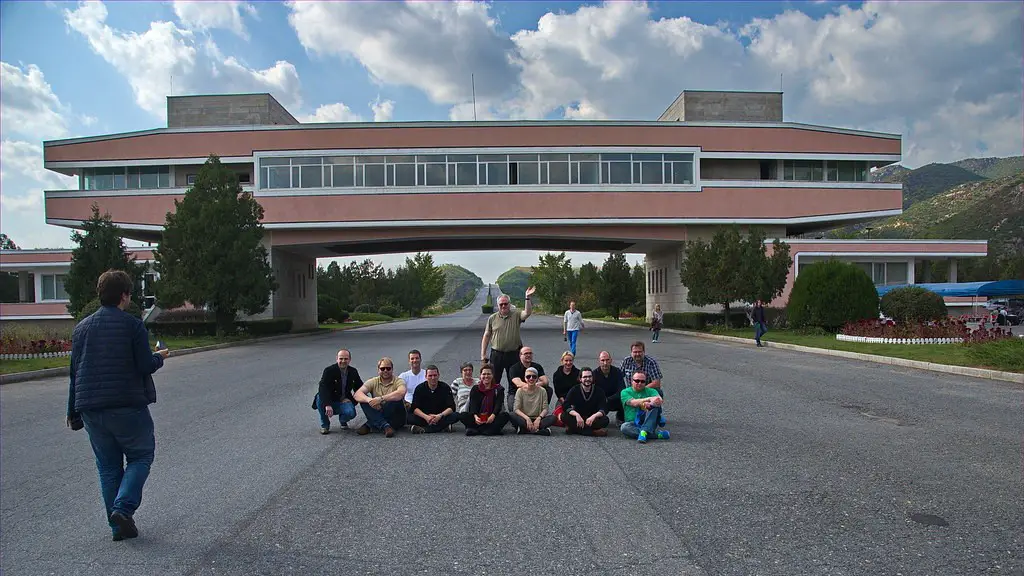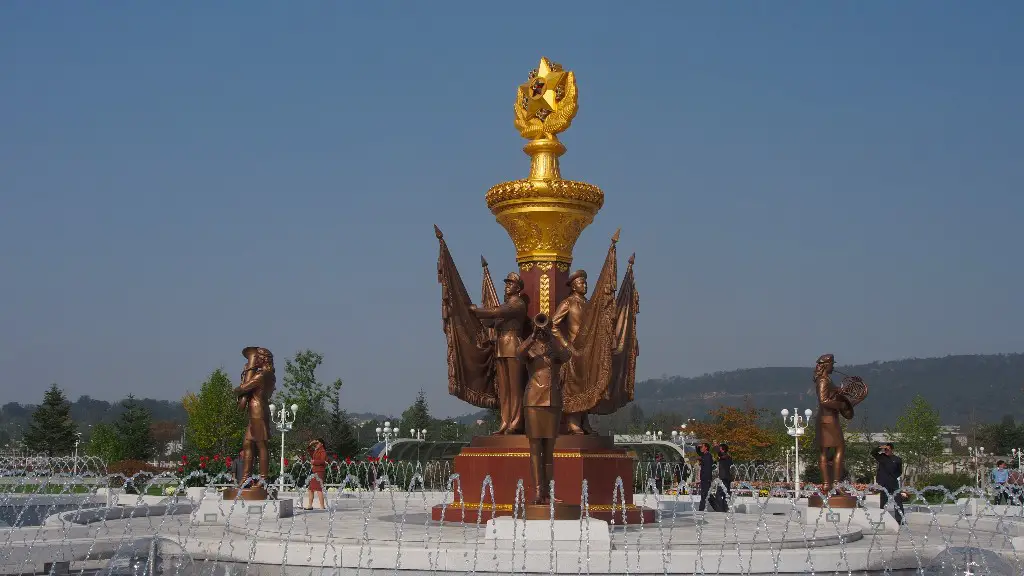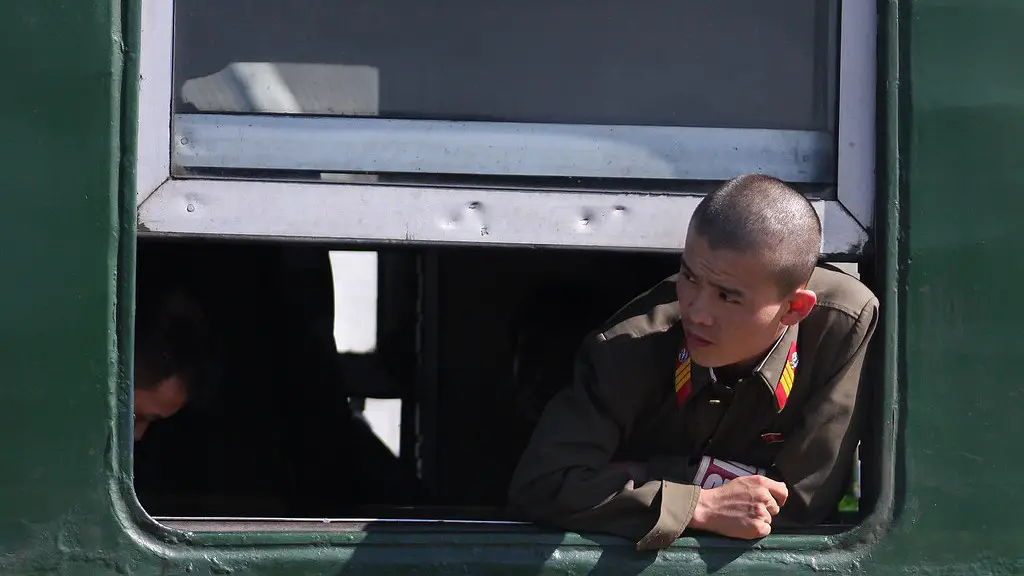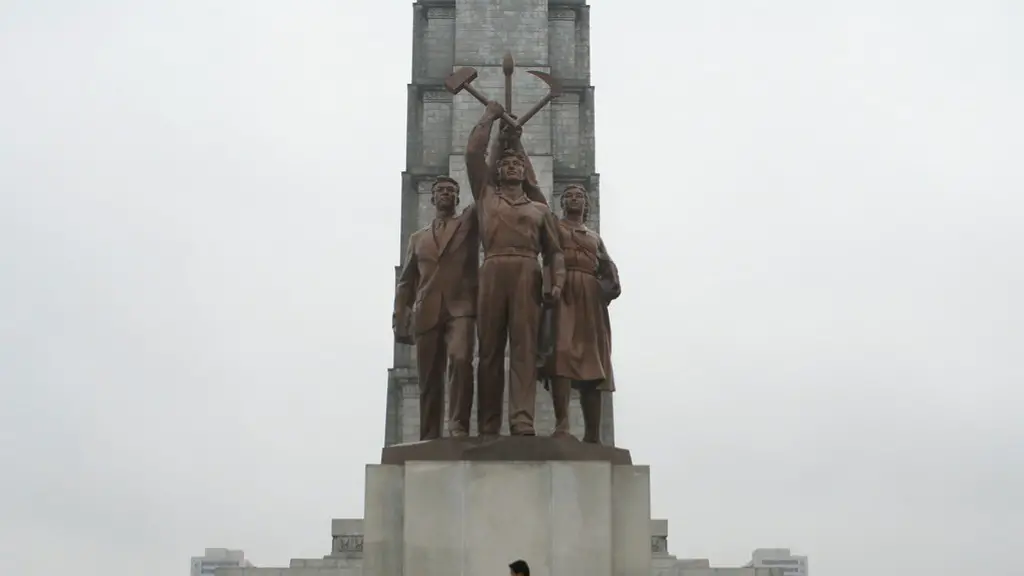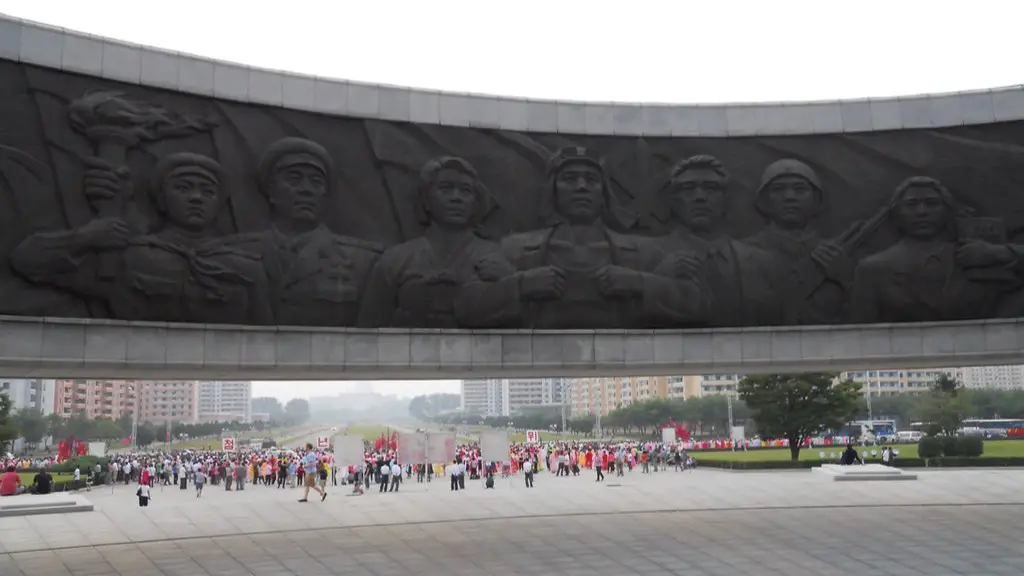North Korea: An Overview
North Korea is a small, hermit country situated in the eastern part of Asia. It is a one-party state, ruled by the Kim dynasty since its founding in 1948. This nation is often referred to as the “hermit kingdom” because of its extreme isolation from the rest of the world. With an estimated population of 25 million, North Korea has been under an oppressive political system for decades, marked by extreme censorship and restrictions of civil liberties. The country is a totalitarian regime with a centrally planned economy. North Korea is impoverished, with a GNP of just over $20 billion, but has diplomatic relations with a number of countries, including China, Russia, Italy, and Egypt.
The life in North Korea is very different from that of most other countries. The government places harsh restrictions on freedom of expression, religious beliefs, and access to outside information. The North Korean media is strictly controlled, and the regime heavily censors outside information. North Korean citizens have little access to foreign goods and services, due to the country’s isolationist policies. In addition, the government severely punishes those who attempt to leave the country without permission.
The North Korean economy is extremely weak, and its citizens often live in poverty. The nation’s economy is heavily reliant on food imports, and North Koreans often face food shortages. The average North Korean earns only about $2 per day, according to a U.N. report. Many citizens lack access to basic medical services, electricity, and running water.
Despite the general poverty and hopelessness of life in North Korea, the government has begun to take small steps towards economic and social reform in recent years. The regime has opened up the country in some respects, to allow for foreign investment and education. However, life overall remains extremely isolated and restricted, and it is still difficult for North Korean citizens to travel outside of the country.
Government Policies and Their Impact
North Korea’s government is notoriously oppressive and authoritarian, and citizens’ freedom of movement, speech, belief, and opinion are restricted. The government places severe restrictions on access to outside information, and citizens are often unaware of news and developments in the outside world. In addition, North Koreans face harsh punishments if they speak out against the regime. Most forms of criticism of the government are severely punished, and political dissidents are often silenced or jailed.
The government also maintains strict control over the economy, and citizens are not allowed to trade goods or services. The entire countrys economic resources and investments are under the government’s control, and the country is extremely reliant on foreign aid. The economy has been stagnating for decades, and many citizens are impoverished and struggle to meet their basic needs.
The government is also known for its use of state-sponsored indoctrination, including teaching ideological lessons and censorship of outside media in schools. This has further isolated the people from the outside world, as most North Koreans simply lack the information to make informed decisions about their own lives.
North Korean citizens also live in constant fear of the government, as the regime monitors citizens’ behaviour and movements, and punishes those who fail to follow the rules or the instructions of their superiors. In addition, North Koreans often have limited access to basic goods, such as food and medical supplies, due to the country’s isolationist policies.
Reforms and Proposals
In recent years, North Korea has begun taking small steps towards economic and social reform. The regime has implemented a series of measures to attract foreign investment and promote educational opportunities. These reforms have also seen some improvements in the living standards of North Korean citizens, as the economy has become somewhat more open to the outside world.
In addition, the government has expressed its interest in normalizing relations with other nations, including the US and South Korea. While there are still some significant differences between the two Koreas, the two nations have held a number of talks and negotiations in the hopes of resolving their differences. However, the relations between the two countries remain highly strained, as both continue to adhere to their respective ideologies and views on the Korean peninsula.
There have also been a number of proposals to help improve the lives of North Koreans. For example, the Trump administration proposed a package of sanctions on North Korea in 2017, in an effort to stop the country’s nuclear weapons program. Other proposals include increased foreign aid, greater access to international markets, and measures to protect human rights and civil liberties. In addition, international organizations and NGOs have proposed a number of initiatives designed to help improve the lives of North Koreans.
International Reactions
The international community’s response to North Korea has been primarily focused on economic sanctions and diplomatic isolation. While some countries, such as China and Russia, have been willing to pursue better ties with the North, the Trump administration has maintained a hard line on the regime, implementing an array of sanctions in an effort to pressure the country to abandon its nuclear weapons program.
The international community has also made an effort to promote human rights in North Korea, with multiple UN resolutions condemning the state’s widespread violations of human rights. A number of international human rights organizations, such as Amnesty International and Human Rights Watch, have also issued reports and statements on the human rights conditions in North Korea, calling upon the international community to act to improve the situation in the country.
Other countries, such as South Korea, have sought to use economic incentives to encourage North Korea to move towards more open and normalized relations. South Korea has proposed a number of economic and diplomatic initiatives designed to improve relations between the two Koreas, and has provided some economic assistance to the North.
Finally, the United States has sought to use economic and diplomatic pressure to persuade North Korea to abandon its nuclear and ballistic missile programs. The US has deployed an array of economic sanctions against North Korea, in an effort to isolate the regime and force it to make concessions.
Cross-Border Relations
North Korea maintains strict control over its borders, and it is difficult for North Korean citizens to cross into other countries without permission. In recent years, the North Korean regime has taken a more relaxed stance towards foreign travel, but it still maintains strict visa requirements and restrictions on the type of travel allowed. In addition, North Korean citizens must obtain permission before travelling abroad.
There are also a number of organizations, both governmental and non-governmental, that provide support and assistance to North Koreans in fleeing their homeland, or attempting to establish contact with family members outside the nation. These organizations provide legal advice and financial assistance to those wishing to leave, and seek to reunite divided families by helping them to travel, stay in touch, and share information.
The two Koreas also maintain a delicate balance of relationship, with both sides attempting to establish better ties. South Korean president Moon Jae-in has been particularly active in his efforts to improve relations between the two countries, with a number of initiatives aimed at fostering peace and developing economic ties.
Tensions between the two countries remain high, however, and there are still a number of issues that need to be resolved. Despite the ongoing dialogue and negotiations, some analysts have raised doubts as to whether the two sides will be able to resolve their differences and move towards normalized relations.
Impact of Covid-19
The novel coronavirus pandemic has had an immense impact on North Korea, as the country has struggled to cope with the health and economic impacts of the virus. The North Korean government has been slow to recognize the crisis, and has often been seen as negligent in its response, with limited testing and a lack of personal protective equipment for healthcare workers.
In addition, the pandemic has hindered the already fragile economy of North Korea, as its largely export-dependent economy has seen sharp declines due to the virus. Foreign investment and aid has dwindled, leading to economic hardship for many citizens, who already suffer from poverty and shortages of food and other vital goods.
The pandemic has also had an immense impact on the population of North Korea, as the country is one of the most isolated nations in the world. With limited access to information and medical supplies, the North Korean people have suffered greatly, with a sharp increase in cases of illness and other preventable diseases.
The novel coronavirus pandemic has also hampered ongoing negotiations between the two Koreas, as the outbreak has derailed a number of discussions and meetings. Despite tensions between the two countries still remaining high, leaders on both sides have expressed a desire to return to talks in the near future, in the hopes of resolving their differences.
